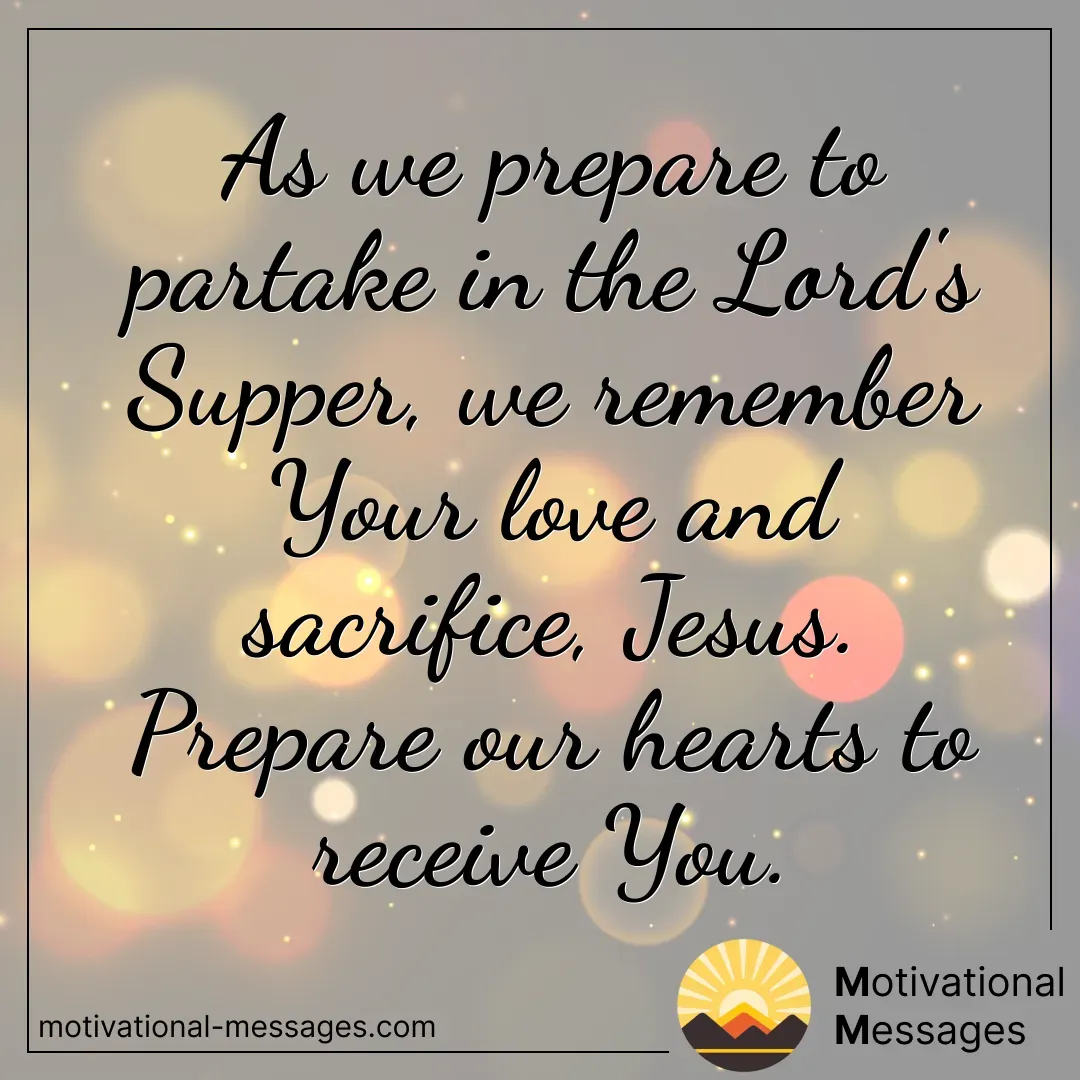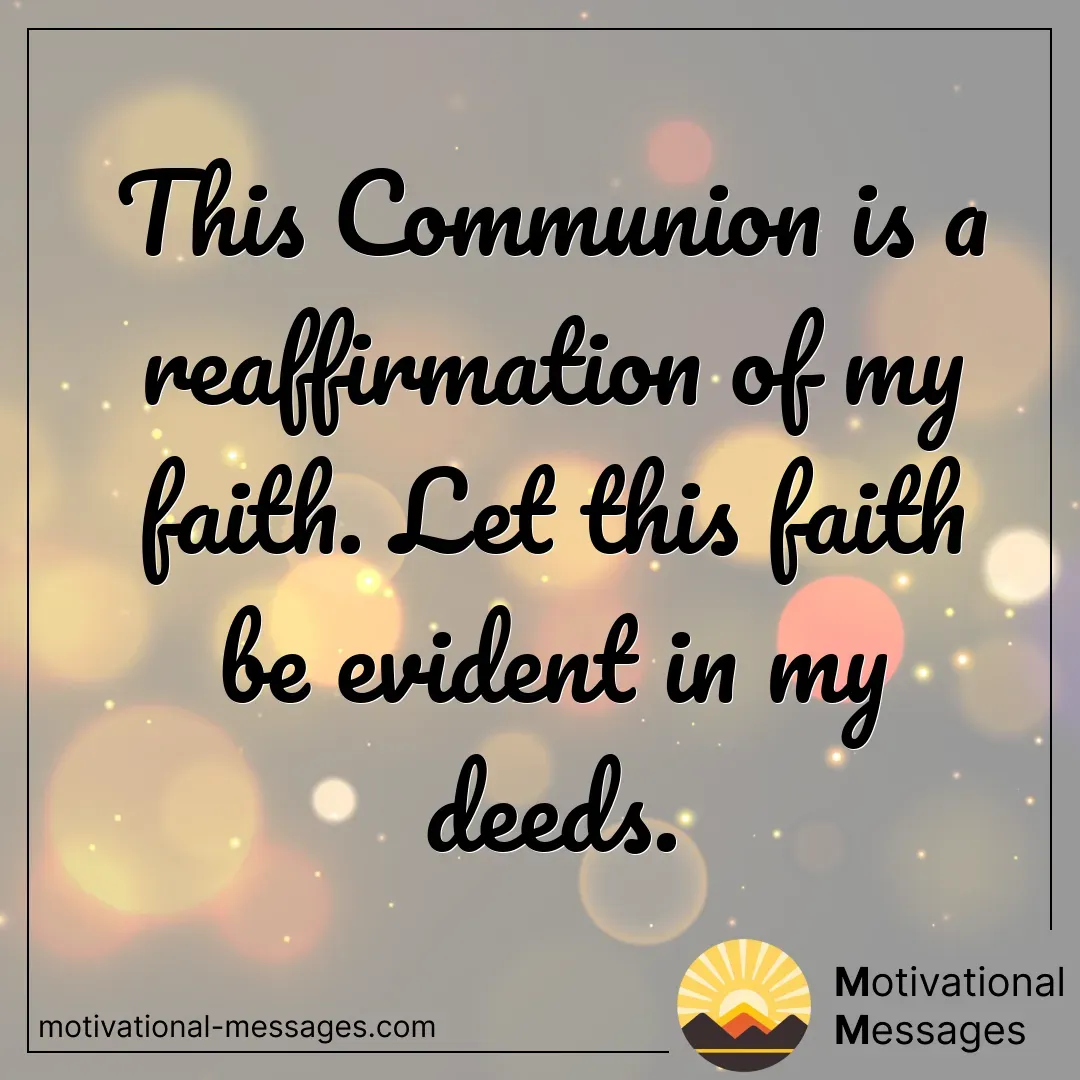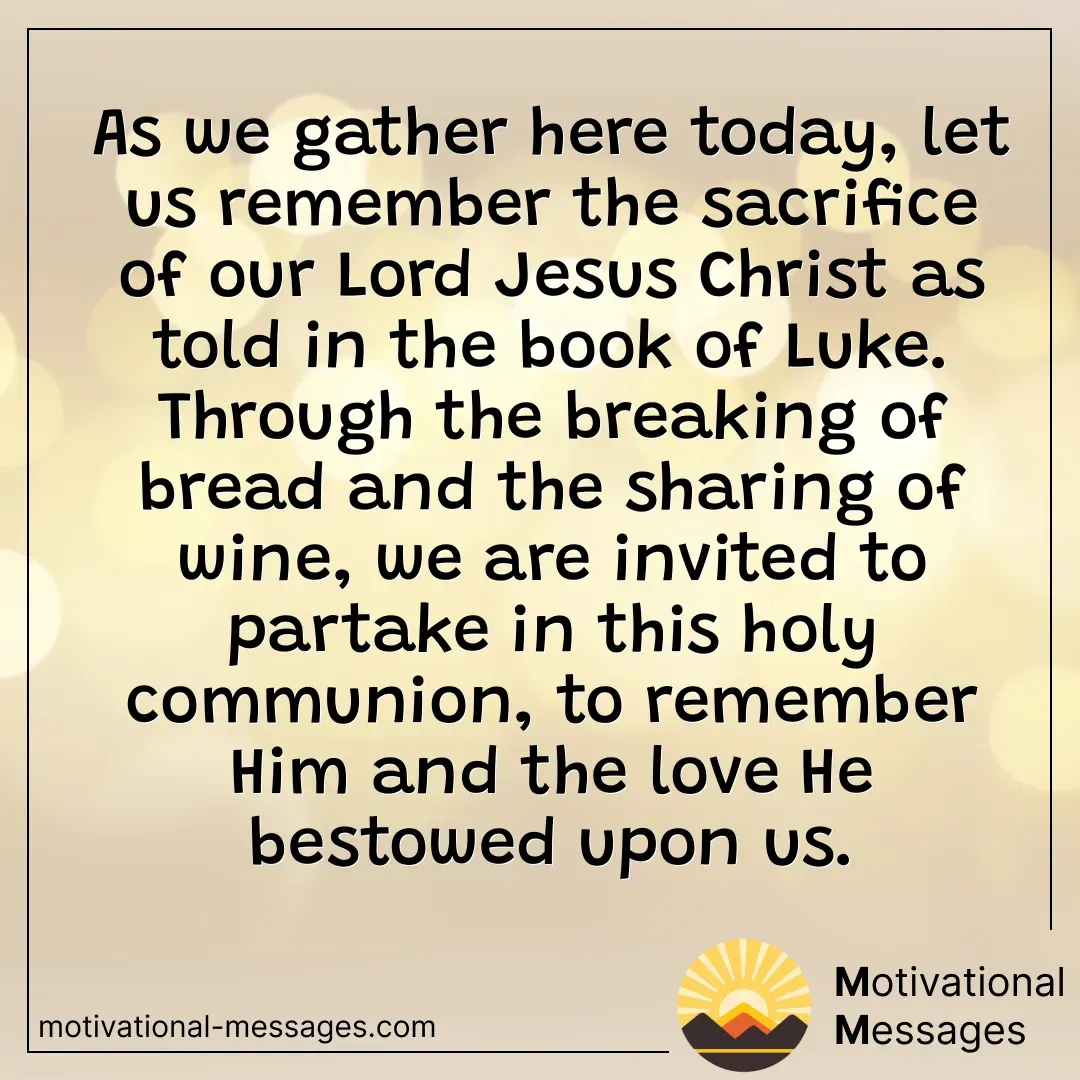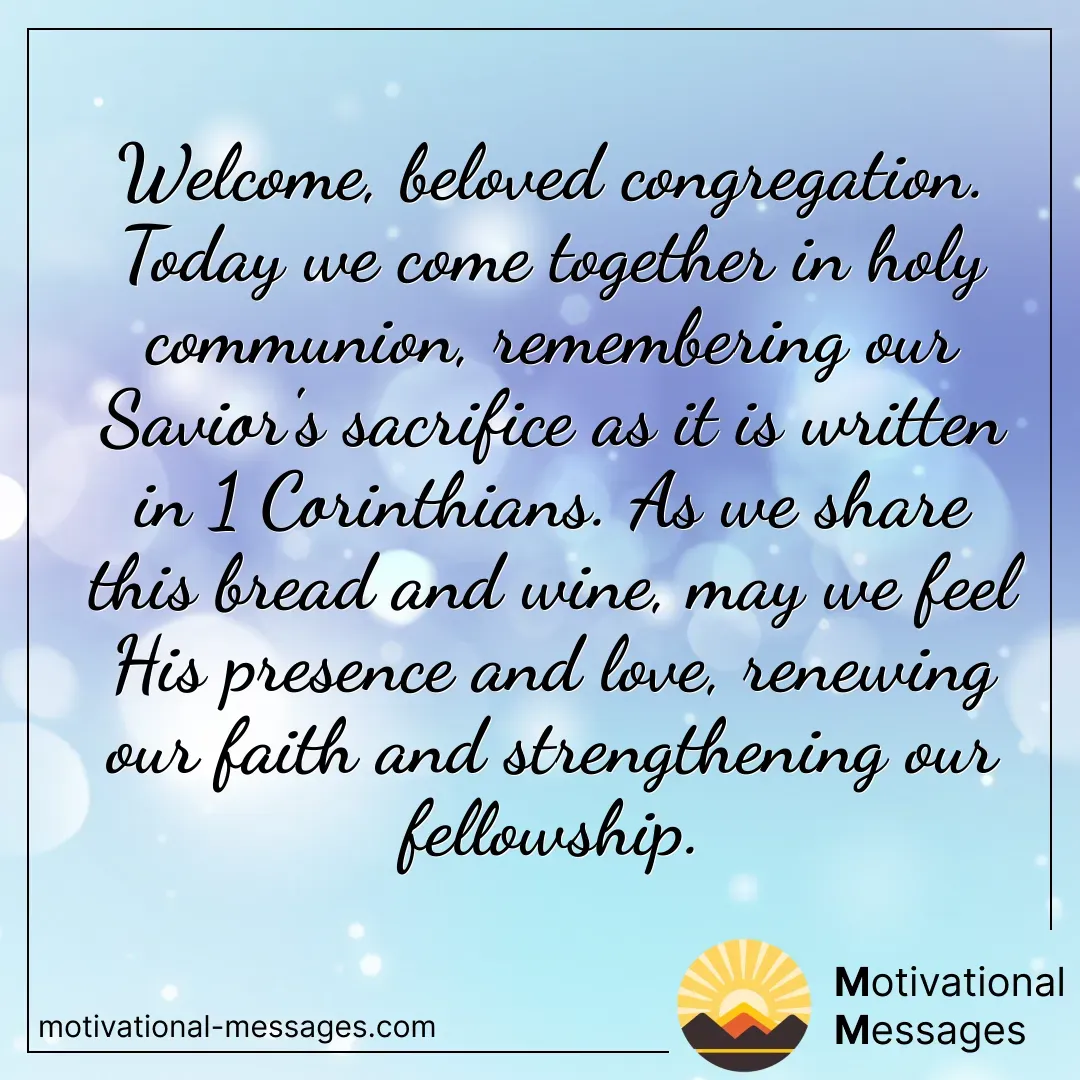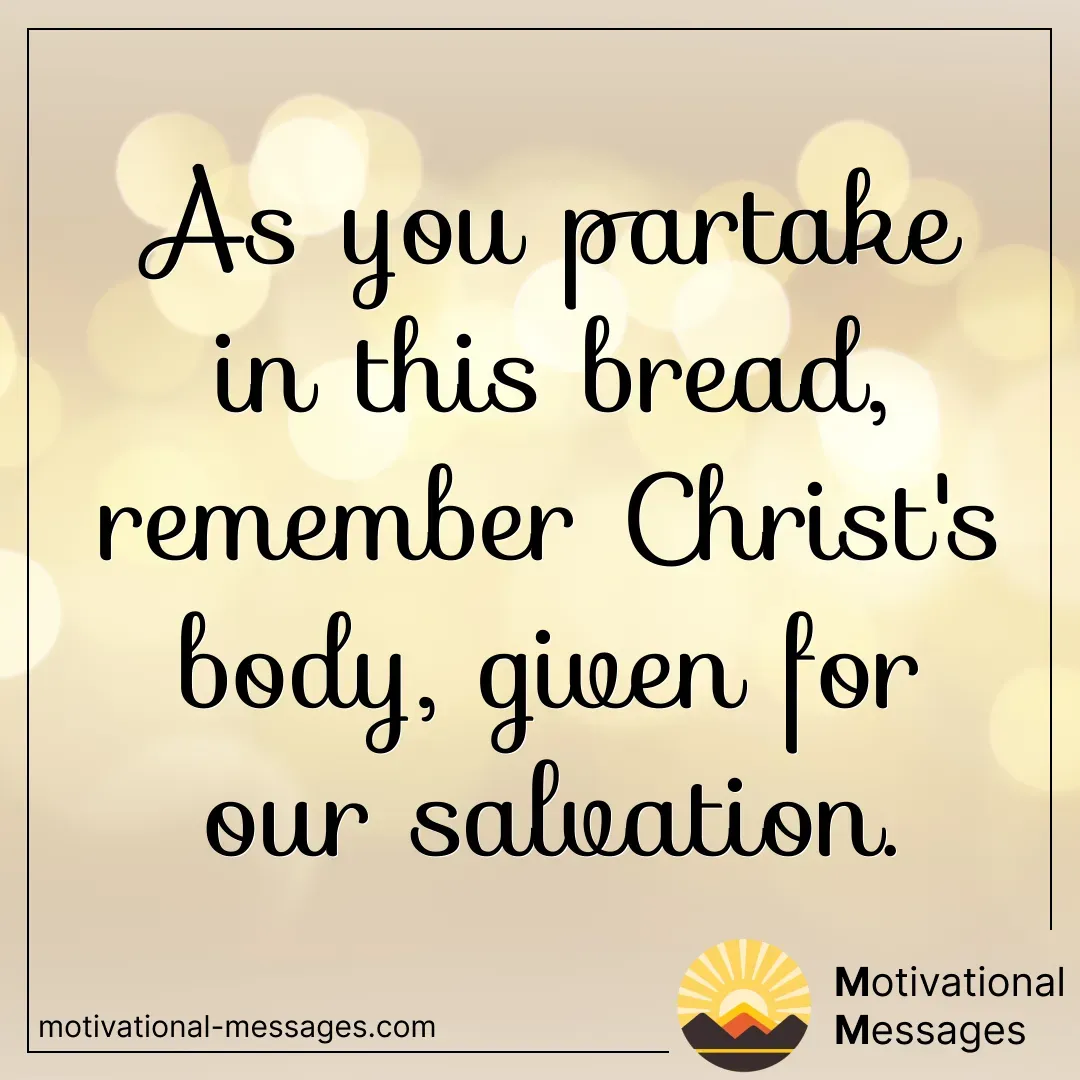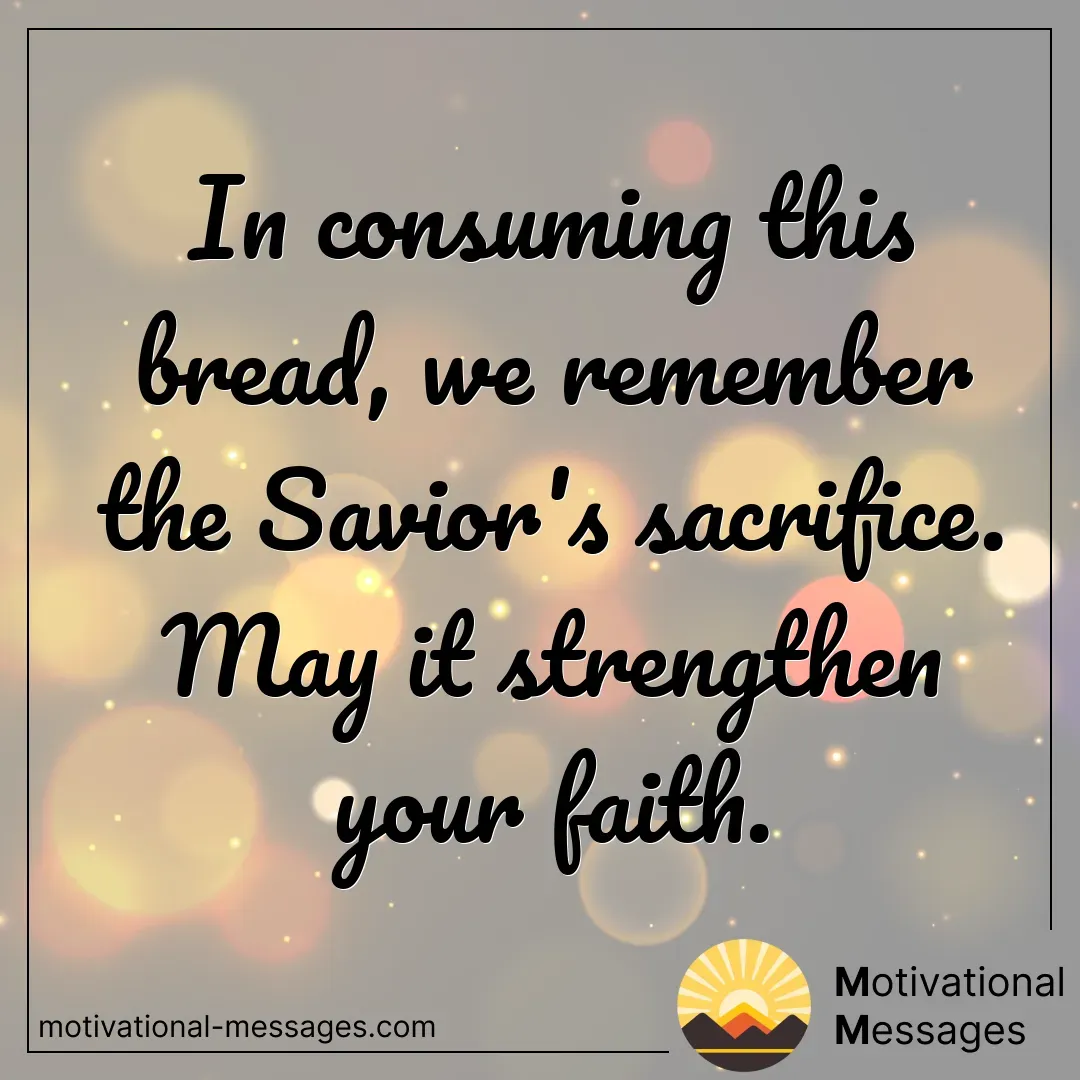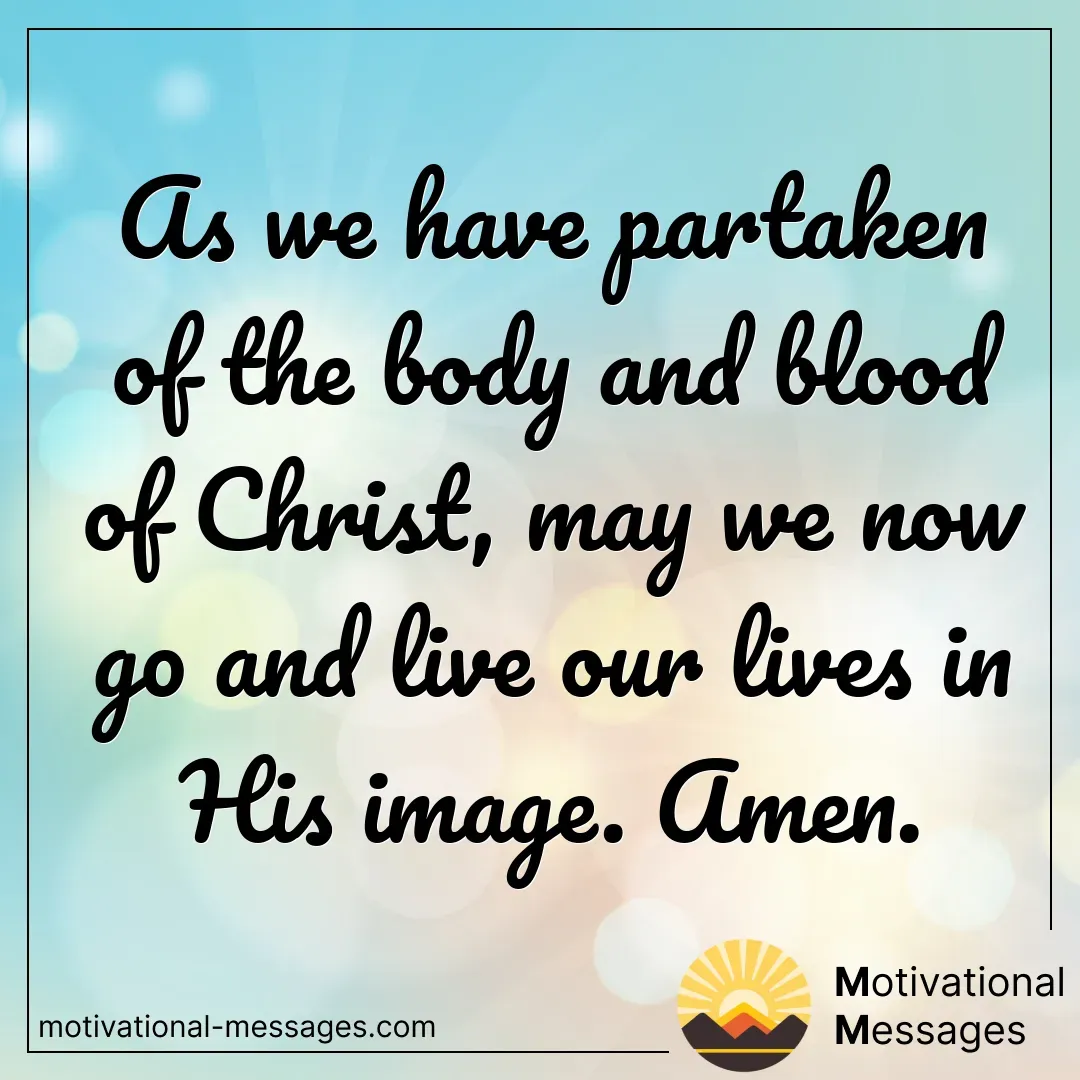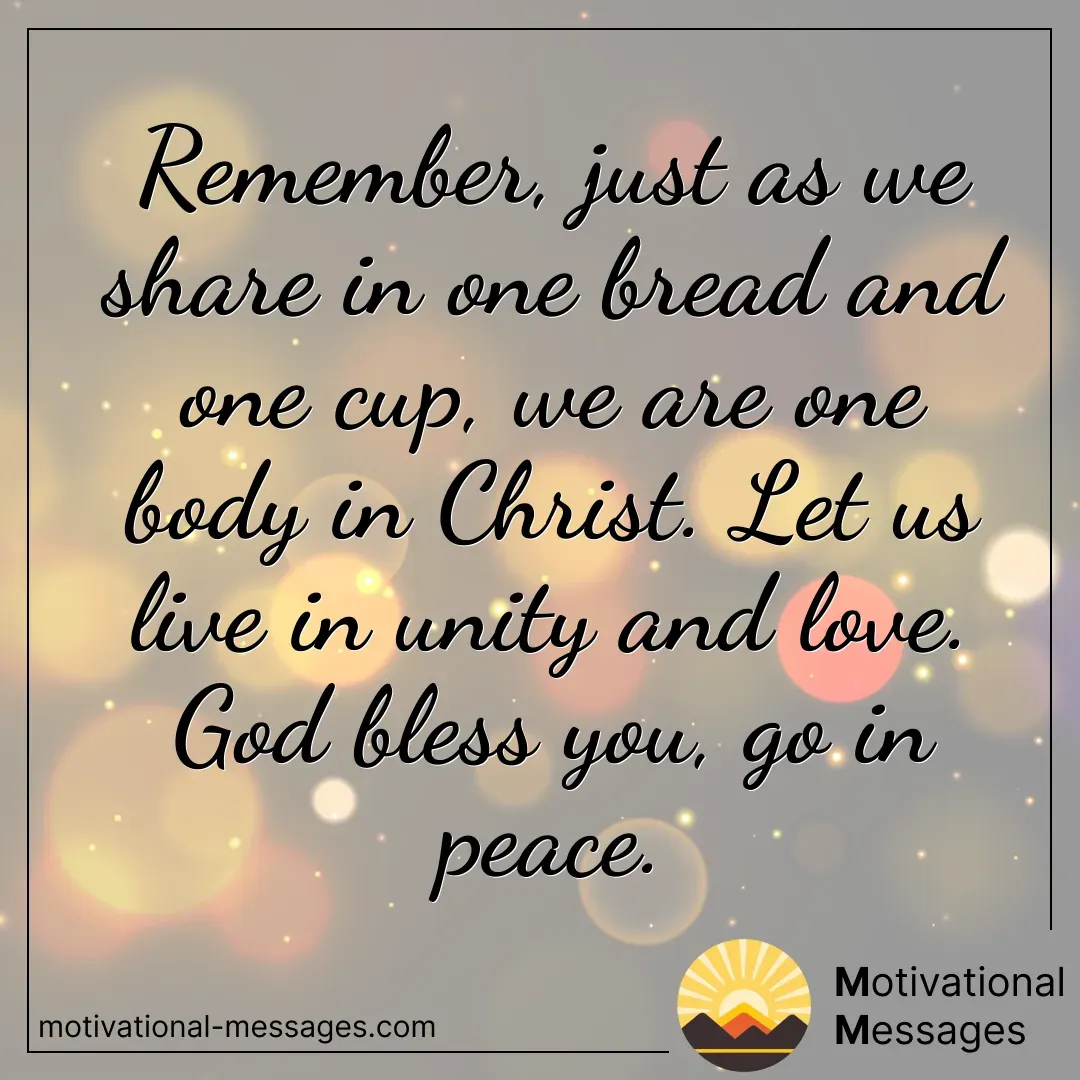“Communion Etiquette and 36 Expressions: A Guide for Participants and Leaders” is a comprehensive article that explores the origins and significance of Christian Communion. It offers valuable guidance on proper etiquette and expressions for both participants and leaders of this sacred practice. Topics covered include preparing for Communion with reflection and confession, appropriate physical posture and reception methods, verbal responses during Communion, post-Communion reflection, and what pastors should say during a Communion service. Additionally, the article answers frequently asked questions about saying ‘Amen’ during Communion, post-Communion reflection, recommended scriptures for Communion services, and the variation of phrases used when distributing Communion across different denominations.
Table of contents:
- What to Say Before Communion
- What Do You Say When You Take Communion
- Words to Say for Communion
- What Does the Pastor Say During Communion
- What to Say at Communion
- Communion Etiquettes FAQ
What to Say Before Communion

Reflection and Confession: Heart Preparation
One of the most crucial aspects of preparing for Communion is the act of self-evaluation and confession. The Apostle Paul teaches that one should examine oneself thoroughly before partaking in the Lord’s Supper1 (1 Corinthians 11:28). Hence, it is crucial to spend time in reflection, acknowledging our sins, and seeking forgiveness.
“Dear Lord, as I prepare to partake in Communion, I introspect and confess my sins. Cleanse my heart and guide me towards righteousness.”
“Father, I come before You, acknowledging my shortcomings. As I prepare for Communion, I ask for Your forgiveness and mercy.”
Prayerful Anticipation: What to Say When Leading Communion
Creating a spiritual atmosphere is essential when leading Communion2. The suitable words to say before Communion should invite participants into a state of reverence and anticipation. Here are some examples of pre-Communion prayers:
“Dear God, as we gather here in anticipation of Communion, open our hearts and minds to the significance of Your sacrifice.”
“As we prepare to partake in the Lord’s Supper, we remember Your love and sacrifice, Jesus. Prepare our hearts to receive You.”
As a leader, your role is to guide the congregation in a spiritual journey. The words you say for Communion should reflect the gravity of the occasion and invite introspection and commitment. Through reflection, confession, and prayerful anticipation, you can help participants prepare their hearts for Communion.
“Lord, we stand in awe of Your sacrifice. As we prepare for Communion, help us to fully comprehend its significance.”
“Father, in reverence, we approach Your table. Guide our hearts and minds as we prepare to partake in Communion.”
These prayers aim to set the tone for the Communion service, guiding participants towards a state of reverence, introspection, and spiritual readiness. Whether you’re a leader wondering what to say when leading Communion or a participant seeking words to say before Communion, these examples could serve as a guide to prepare hearts for the holy sacrament.
“God, in Your Mercy, guide us as we approach Your table. As we prepare for Communion, may we fully grasp the weight of Your sacrifice.”
“We stand humbled by Your love, Jesus. As we prepare for Communion, examine our hearts and reveal areas in need of Your healing touch.”
Remember, preparation for Communion isn’t just about the words spoken; it’s an inward journey that calls for honest introspection, confession, and anticipation of the divine encounter that Communion promises.
What Do You Say When You Take Communion
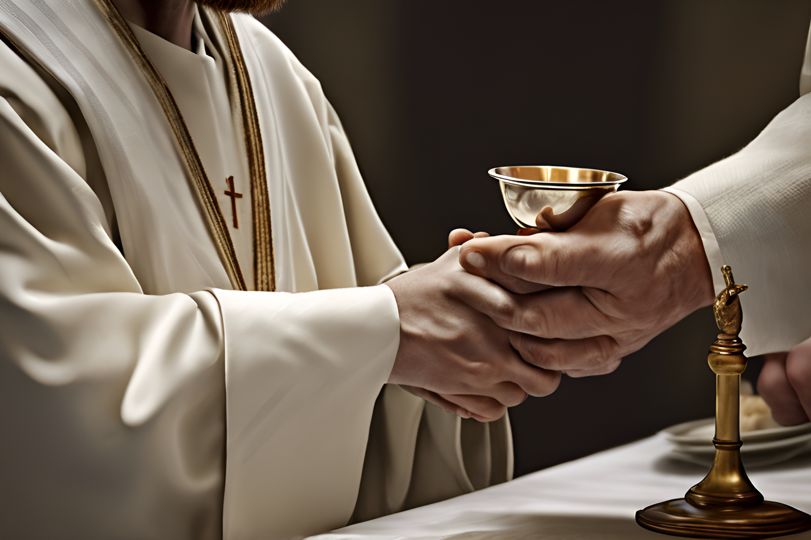
Communion is a profound act, and the words spoken during this sacrament carry great significance. When receiving communion, it’s essential to maintain the appropriate physical and verbal etiquette.
Physical Posture and Reception Etiquette
In Christian traditions, the physical posture during communion is an outward reflection of inward reverence3. When approaching the altar, a respectful, humble approach is encouraged. You may kneel or stand, according to the norms of your church. When receiving the communion elements, one might extend their hands palm up or receive on the tongue, a gesture symbolic of spiritual openness and submission to Christ’s sacrifice.
Verbal Responses: What to Say During Communion
The act of receiving communion is often accompanied by verbal affirmations. The most common phrase uttered upon receiving communion is ‘Amen’, a biblical affirmation meaning ‘so be it’. This single word acknowledges the mystery of the holy communion, agreeing to the spiritual implications of the act.
However, the beauty of communion lies in its profound personal significance, which can be reflected in different verbal responses. Here are 12 examples of what you might say when receiving communion:
Lord, I receive Your body broken for me.
Your blood spilled for my sins brings me eternal life.
I partake in Your sacrifice, acknowledging Your love for mankind.
Amen, Lord. Let Your sacrifice cleanse and renew my spirit.
I accept this bread of life, in remembrance of You.
Your body and blood, the saving grace for my soul.
Acknowledging Your sacrifice, I partake in this holy communion.
I receive this, recognizing Your body given for me.
This is the body of Christ, given for us.
With humility, I accept this symbol of Your sacrifice.
I take this, remembering Your death until You come again.
Accepting this bread, I acknowledge your sacrifice and celebrate Your resurrection.
The act of receiving communion is a personal, spiritual experience. Each utterance, whether a simple ‘Amen’ or a personalized affirmation, carries the weight of acknowledging and accepting Christ’s sacrifice4. Understanding the etiquette of ‘what do you say when taking communion’ can deepen this sacred experience for every believer.
Words to Say for Communion

One of the most profound moments in a Christian’s spiritual journey is engaging in the act of Communion. This sacred experience doesn’t end at the exact moment you receive the elements; it extends to the time shortly after, which is reserved for contemplation and offering prayers of gratitude. This segment emphasizes the significance of post-Communion reflection, presenting the ‘what to say for communion’ as a form of personal spiritual expression.
Post-Communion Reflection
Reflecting after receiving Communion is a chance to connect more deeply with the divine6, expressing gratitude and absorbing the spiritual significance of the sacrament. The words to say for communion during this time are deeply personal and may vary among individuals. However, the underlying theme is appreciation for Christ’s sacrifice and a renewed commitment to live out His teachings.
In the silence that follows Communion, some may ask ‘what is said during communion’? Here are some suggested expressions, serving as inner dialogue or whispered prayers, that could guide your contemplation:
Lord, thank you for this meal that signifies Your love and sacrifice. I am humbled and grateful.
“In receiving this Communion, I am reminded of Your everlasting grace. May it guide my actions henceforth.”
“Your body was broken, Your blood was spilled, all out of love. Let me not take this for granted.”
“This Communion strengthens my faith and resolve. May I live as a testament to Your love.”
“May this spiritual nourishment lead me on the path of righteousness, emulating Your teachings in my daily life.”
“Thank you for this moment of communion with You. May Your peace and love dwell in me.”
“As I partake in this Communion, I am reminded of my place in Your family. Guide me in love and unity.”
“With this bread and wine, I remember Your sacrifice. Help me to extend this love to others.”
“Through this Communion, I feel Your grace upon me. May I spread this grace in my life.”
“This Communion is a reaffirmation of my faith. Let this faith be evident in my deeds.”
“Thank you for the gift of salvation symbolized in this Communion. Direct my paths in Your truth.”
“As I reflect on Your sacrifice, let me not forget the call to love and serve others. Empower me for Your work.”
These reflections serve as a guide and starting point. As you engage in this spiritual practice, remember that the most genuine prayers are those that arise from the heart. Indeed, the essence of Communion lies in the personal encounter with Christ5, and this is beautifully expressed in the quiet moments of reflection after receiving Communion.
What Does the Pastor Say During Communion
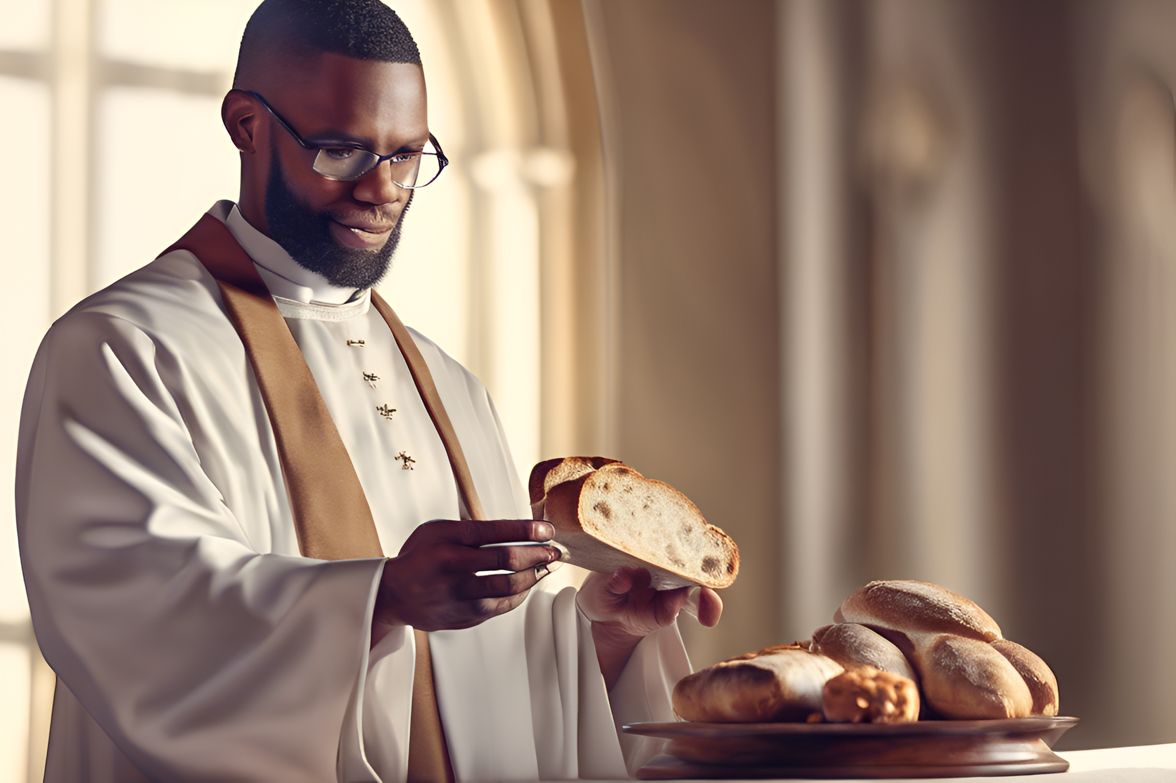
Communion services encompass a significant spiritual ritual in many Christian churches. What the pastor says during communion can profoundly impact the congregation’s experience8 and their connection to the divine message of Christ’s sacrifice.
Setting the Spiritual Tone: Scripture and Introduction
To set the spiritual tone of the communion service, the pastor often starts by reciting suitable scriptures that highlight the significance of Jesus’ sacrifice. This could include passages such as Luke 22:19-20, which narrates the Last Supper, or 1 Corinthians 11:24-26, which emphasizes the importance of communion as a remembrance of Christ’s sacrifice. Following the scripture reading, the pastor may commence the service with a heartfelt introduction, inviting the congregation into a time of reflection and communion with God and each other.
“As we gather here today, let us remember the sacrifice of our Lord Jesus Christ as told in the book of Luke. Through the breaking of bread and the sharing of wine, we are invited to partake in this holy communion, to remember Him and the love He bestowed upon us.”
“Welcome, beloved congregation. Today we come together in holy communion, remembering our Savior’s sacrifice as it is written in 1 Corinthians. As we share this bread and wine, may we feel His presence and love, renewing our faith and strengthening our fellowship.”
Distributing the Elements: What to Say When Giving Communion
When it comes to distributing the elements, understanding what to say when giving communion is crucial for a pastor. The process is sacred and involves offering the bread and wine – representative of Christ’s body and blood – to the congregation. Here, phrasing can range from referencing scriptural quotations to more personalized blessings. Here are 12 examples of suitable expressions:
“This is the body of Christ, broken for you. May it nourish your spirit.”
“The bread of life, given for us. Take, eat, and remember His love.”
“This is the blood of Christ, shed for you. Let it cleanse your soul.”
“The cup of the new covenant, poured out for us. Drink and remember His sacrifice.”
“As you partake in this bread, remember Christ’s body, given for our salvation.”
“As you sip from this cup, remember Christ’s blood, spilled for the remission of our sins.”
“Through this bread, may you experience the depth of Christ’s love for you.”
“Through this cup, may you understand the extent of Christ’s sacrifice for mankind.”
“This bread, broken as Christ’s body was, reminds us of His love.”
“This wine, poured as Christ’s blood was, reminds us of His eternal covenant.”
“In consuming this bread, we remember the Savior’s sacrifice. May it strengthen your faith.”
“In drinking this wine, we partake in His everlasting covenant. May it renew your spirit.”
What to say when leading communion is a vital aspect of the service. The right words can create a spiritual atmosphere that inspires and uplifts the congregation7, making the experience both meaningful and memorable.
What to Say at Communion

The conclusion of the Communion service is as significant as its commencement. It’s during this time that the congregation reflects on the shared spiritual experience9 and receives the final blessing. At this stage, the question often arises, ‘what to say at communion’ to conclude the service with grace and solemnity.
Endnotes: Final Blessings and Prayers
The final segment of the Communion service usually involves blessings and prayers. Delivered by the priest or pastor after the elements of bread and wine have been partaken, these concluding words serve as a spiritual seal on the sacred ceremony.
The grace of our Lord Jesus Christ, the love of God, and the fellowship of the Holy Spirit be with us all, now and forever more. Amen.
May the peace of Christ, who gave His body and blood for the world, guide our hearts and minds, as we leave here today. Amen.
As we have partaken of the body and blood of Christ, may we now go and live our lives in His image. Amen.
Let us depart in peace, our hearts filled with the love of Christ who sacrificed Himself for our redemption. Amen.
For those wondering ‘what to say during communion service’ to wrap up the ceremony, here are some more examples of concluding prayers and blessings:
May the God of peace, who through the blood of the eternal covenant brought back from the dead our Lord Jesus Christ, equip us with everything good for doing His will.
Remember, just as we share in one bread and one cup, we are one body in Christ. Let us live in unity and love. God bless you, go in peace.
May the Spirit of God, who has united us in this holy sacrament, guide us in all truth and peace.
May the grace of our Lord Jesus Christ, the love of God, and the fellowship of the Holy Spirit, be with us all evermore.
As we leave this place, may we carry the light of Christ within us, sharing His love, His peace, and His joy with all we meet.
Go forth in peace, bearing witness to the love of Christ in your hearts, and the power of His resurrection in your lives.
May the Lord bless us, protect us from all evil, and bring us to everlasting life. Amen.
When deliberating ‘what does the priest say during communion’ at the end of the service, these expressions serve as a guide. They mirror the essence of the sacred ceremony, promoting peace, unity, love, and the grace of Jesus Christ. The final prayers and blessings are a crucial part of the service, providing spiritual closure and a sense of fulfillment10 to the gathered congregation.
Communion Etiquettes FAQ
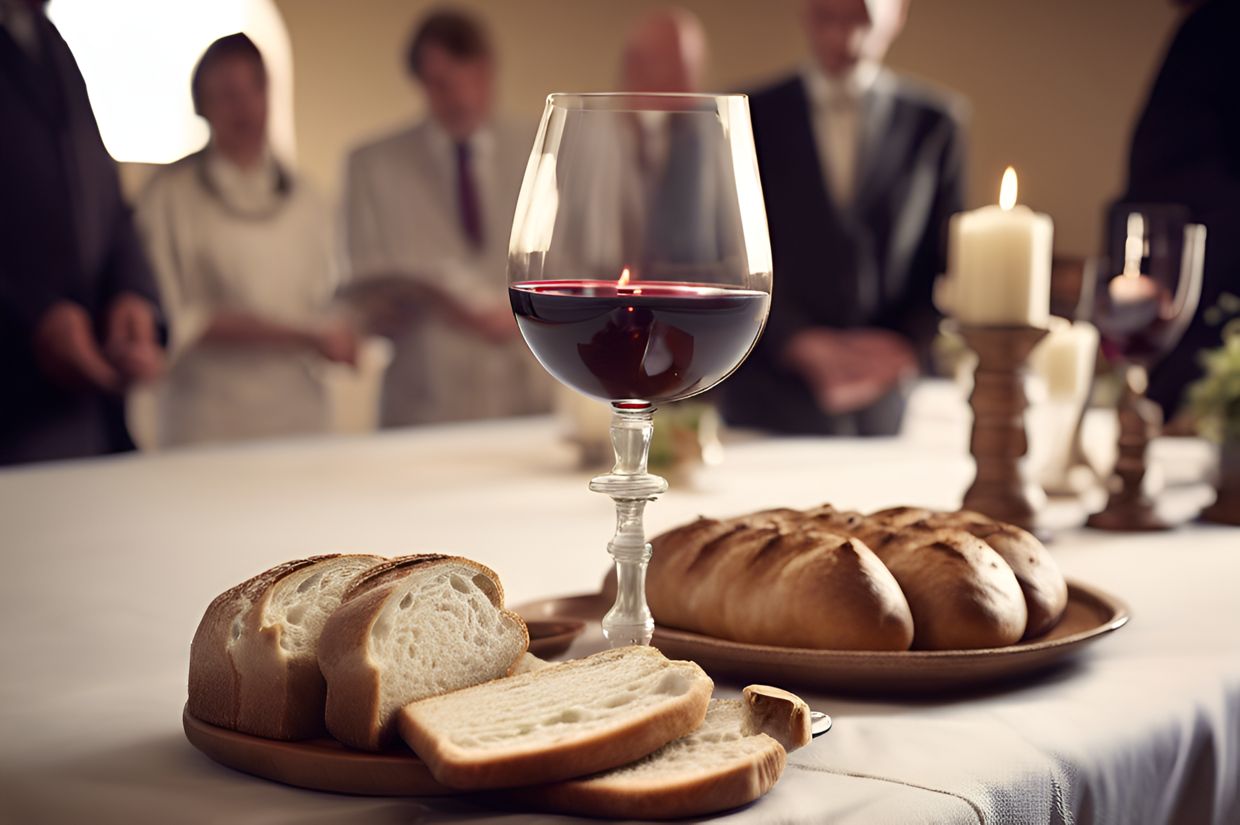
1. What is the Meaning of Communion in Christianity?
Communion is a Christian sacrament that symbolizes Jesus’ sacrifice. It involves partaking of bread and wine as Christ’s body and blood.
2. Who Can Participate in Christian Communion?
All baptized followers of Jesus Christ who understand the symbolic significance of communion11 are eligible to participate.
3. How Often Should Communion Be Observed?
The frequency of communion varies among different Christian denominations. It can be observed daily, weekly, monthly, or annually.
4. What is the Role of a Pastor during Communion?
A pastor guides the congregation through the communion service, interpreting scripture, distributing the elements, and offering blessings.
5. Is there a Specific Dress Code for Communion?
While there isn’t a universal dress code, attendees are typically expected to wear modest and respectful clothing.
6. Are Children Allowed to Receive Communion?
Some churches allow baptized children to receive communion, while others wait until the child has undergone a confirmation process.
7. Can I Observe Communion at Home?
Yes, home communion is practiced in some Christian denominations, often with guidance from a church leader.
8. What Should I Reflect on During Communion?
Communion is a time to reflect on Christ’s sacrifice, your commitment to His teachings, and your relationship with others12 in the community.
9. Can I Participate in Communion if I’ve Missed Church Services?
Yes. Regular church attendance isn’t a prerequisite for communion. The crucial aspect is understanding and appreciating its symbolism.
10. What Does the Bread and Wine Represent in Communion?
In communion, the bread represents Jesus’ body, and the wine symbolizes His blood, shed for the redemption of humanity.
11. Are There Any Dietary Restrictions for Communion?
Generally, no. However, some churches offer gluten-free bread and non-alcoholic grape juice as alternatives.
12. How Should I Prepare Myself for Communion?
Prepare for communion through self-examination, repentance, and prayer. Reflect on Jesus’ teachings and His sacrifice for humankind.
- (PDF) Confession, in-service training and reflective practices ↩︎
- Spirituality’s Influence on Religious Ceremonies and Well-Being ↩︎
- (PDF) Body Posture and Religious Attitudes ↩︎
- The Influence of Words in Christian Sacraments: Communion Study ↩︎
- Exploring Personal Divine Encounters through Christian Communion Practices ↩︎
- The Contemplative Influence of Cognition and Recognition ↩︎
- The Influence of Language Learning on Religious Practices ↩︎
- Exploring the Social Function of Preaching Language ↩︎
- The Influence of Shared Religious Experience on Church Community Health ↩︎
- Religious Rituals and Their Impact on Mental Health ↩︎
- Exploring Christian Communion: A Study on Religious Practices ↩︎
- The Influence of Reflection in Christian Communion ↩︎




